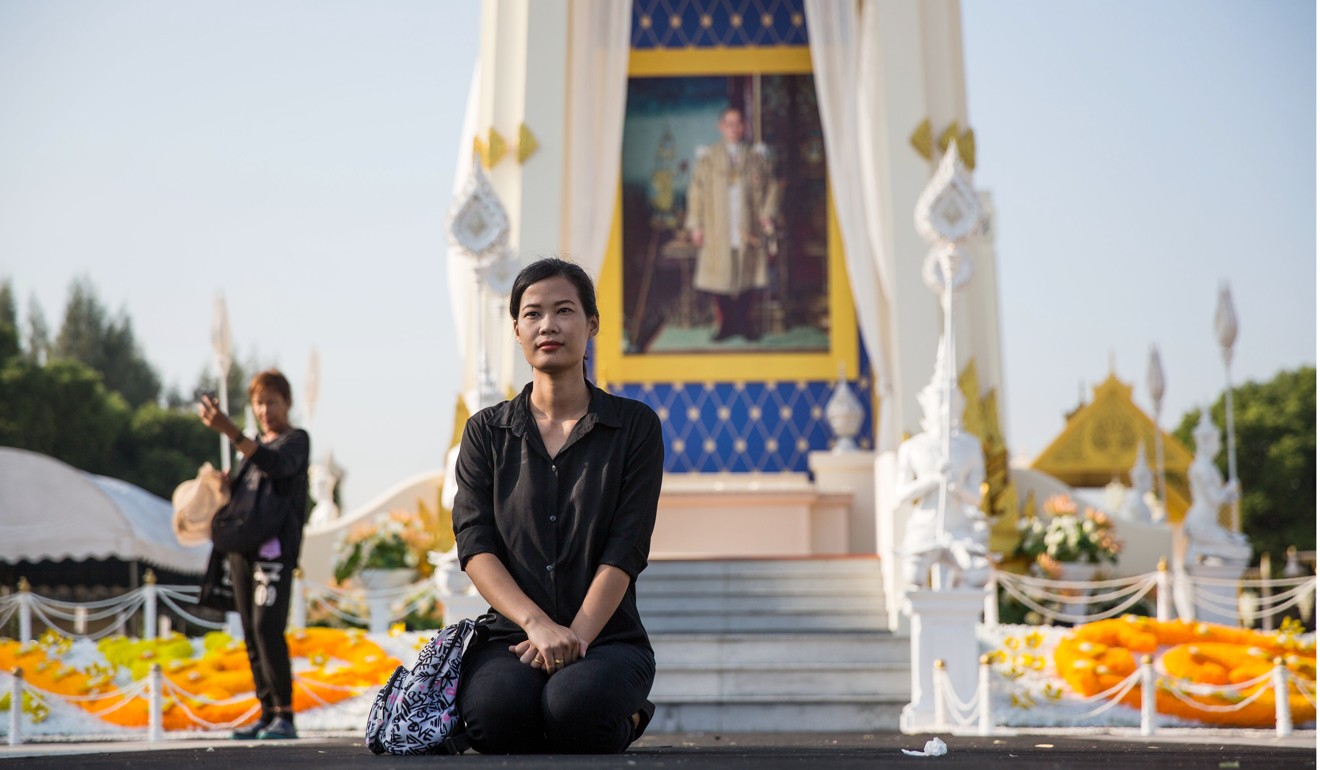
Relics picked from late Thai king’s ashes
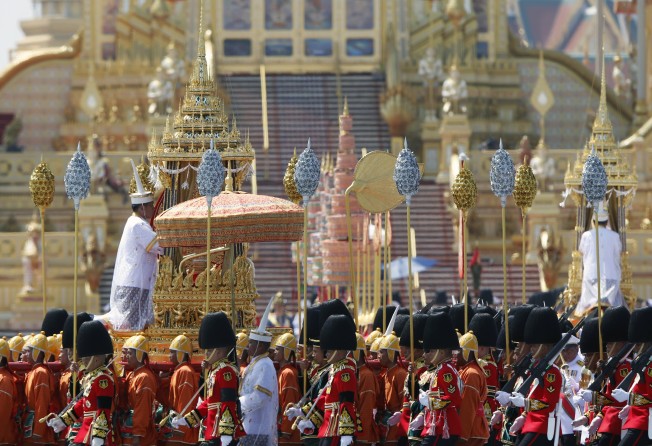
Thailand’s new king picked bits of bone and ash from his father’s remains on Friday to be enshrined as royal relics, after the cremation of the late King Bhumibol Adulyadej capped an extravagant funeral that brought the nation to a standstill.
The lighting of the funeral pyre late Thursday night, which was held out of view, closed the book on the 70-year reign of a monarch who was elevated to saint-like status.
The grand send-off, held a year after Bhumibol died aged 88, was a spectacular show of the elaborate, enigmatic rituals that gird a powerful monarchy cloaked in myth and spirituality.

On Friday, Bhumibol’s son and successor, 65-year-old King Maha Vajiralongkorn, ascended the steps of the glistening crematorium complex to select relics from his father’s ashes.
The monarch poured fragrant water on the pile of remains, before placing fragments of bone into six golden, diamond-encrusted urns that were then carried in palanquins by a colourful procession to the Grand Palace.
The five-day funeral, which concludes on Sunday and cost some US$90 million, has seized the attention of a nation where love for Bhumibol runs deep.
About 300,000 mourners in black crammed into Bangkok’s old quarter to get close to the four-hour procession on Thursday that delivered the funeral urn to the decorated crematorium.
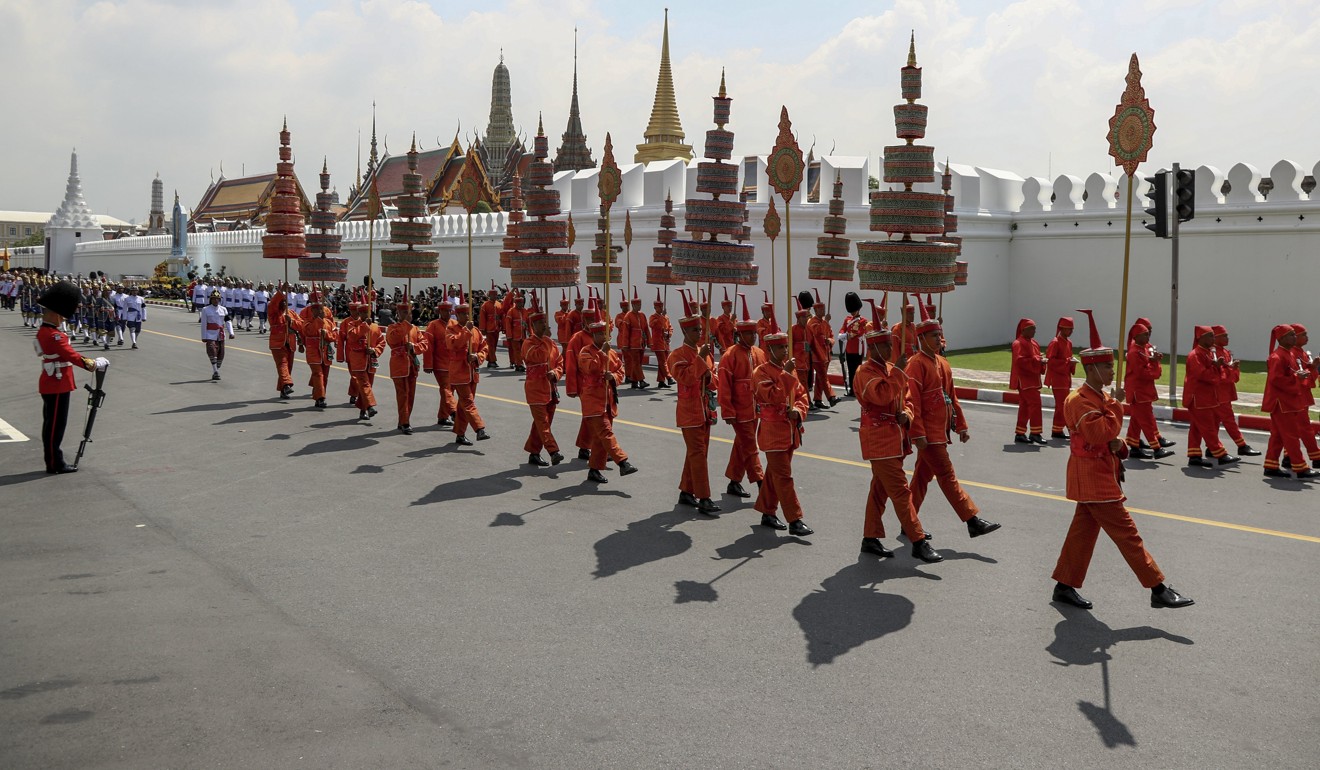
Mourning stretched far across the country, with more than 19 million Thais – nearly a third of the population – joining funeral rites to lay sandalwood flowers in symbolic contributions to the cremation.
Others have tuned in to televised broadcasts of the processions, monk-led rituals and traditional art performances marking Bhumibol’s send-off.
But the funeral’s climax – the lighting of the pyre – was not aired live on Thursday night as most media were whisked away from the area and official broadcasts turned to dance and folk theatre shows that ran through the night.
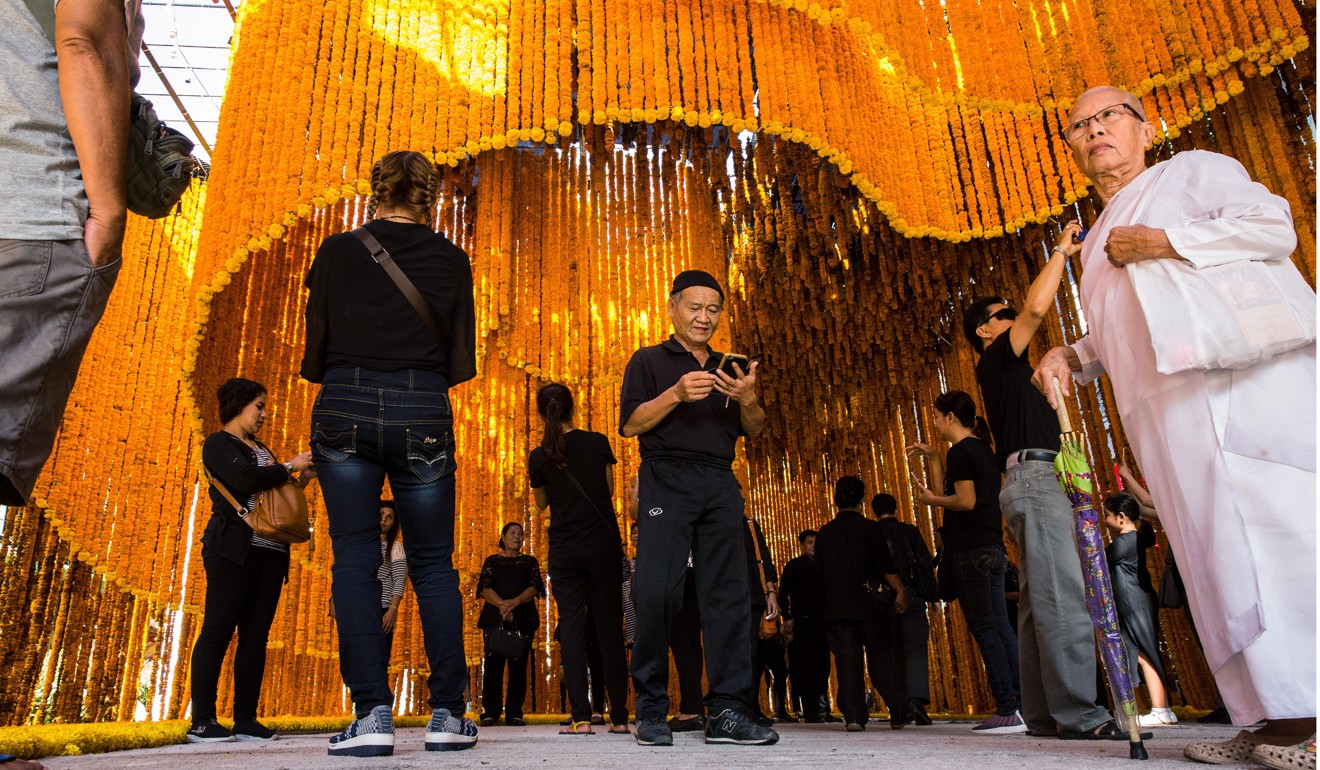
Later in the evening smoke could be seen billowing out from the illuminated funeral pyre.
“When I turned back to the crematorium and saw the smoking rising, I cried automatically, like someone had pushed a button,” said Narongdech Mokmek, a 33-year-old teacher from Supan Buri province.
He was among tens of thousands who had spent several nights camped outside the purpose-built crematorium complex in Bangkok’s old quarter.
The passing of Bhumibol, an anchor of stability across decades of political tumult, has ushered Thailand into a new era laden with uncertainty.
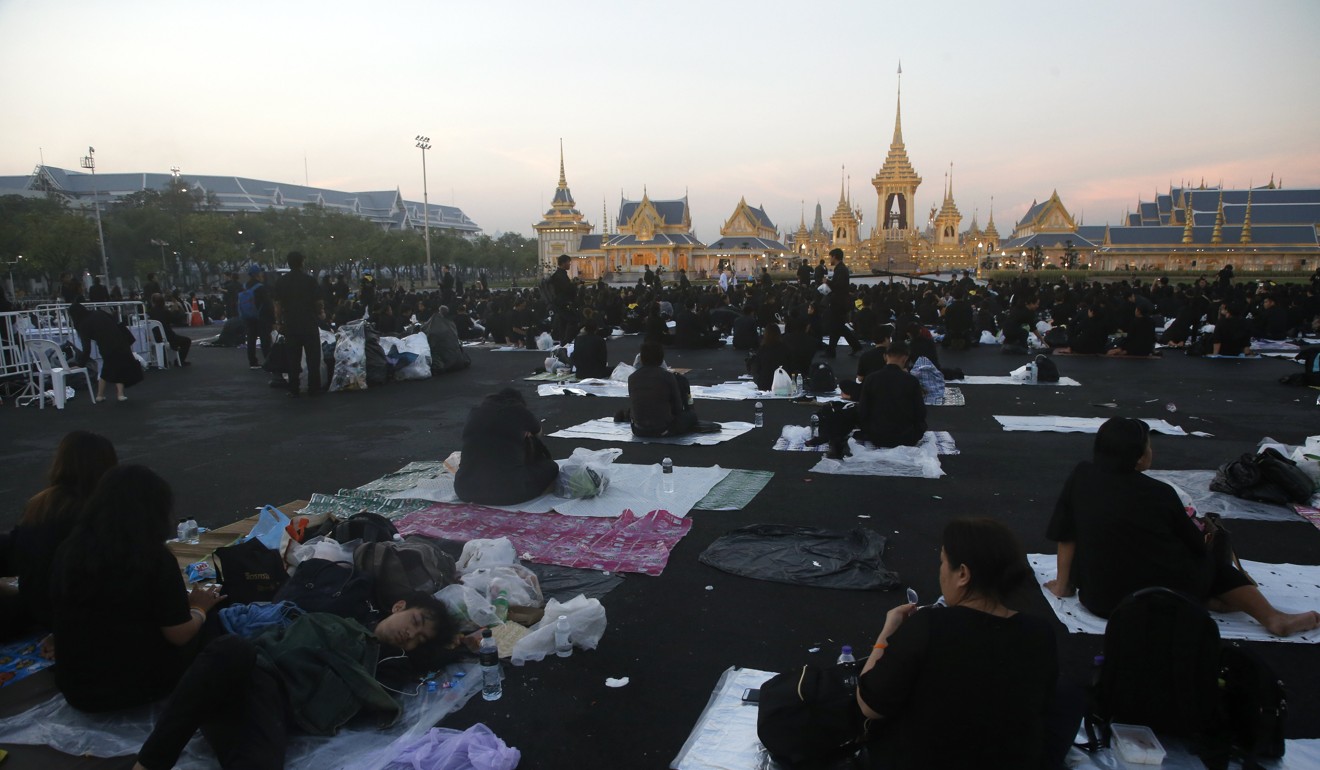
The new monarch has yet to command the same level of devotion from a people split by political rivalries.
His approach to the crown – and relationship with the military government – also remains largely inscrutable and off-limits because of a draconian royal defamation law.
The legislation has been used to punish criticism of the royal family with decades-long jail sentences.
Prosecutions have been surging since an ultra-royalist junta seized power in 2014 as Bhumibol’s health was declining.